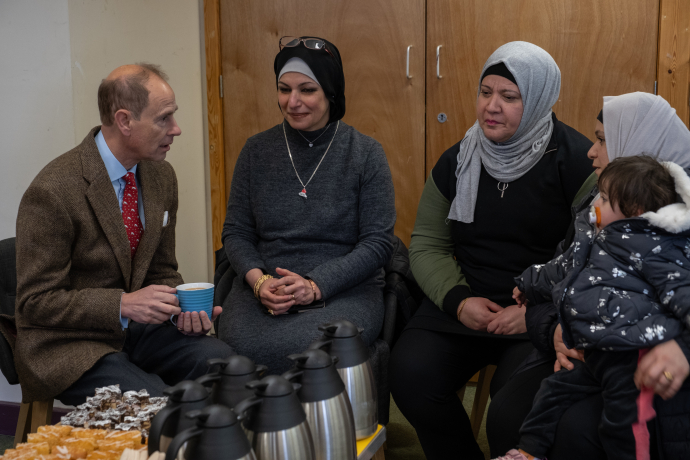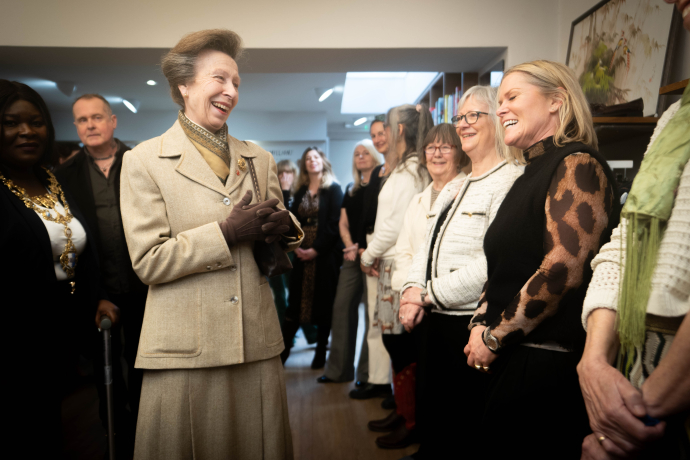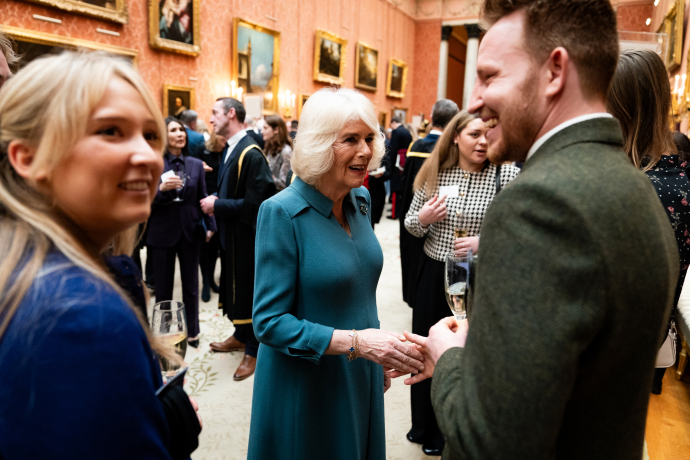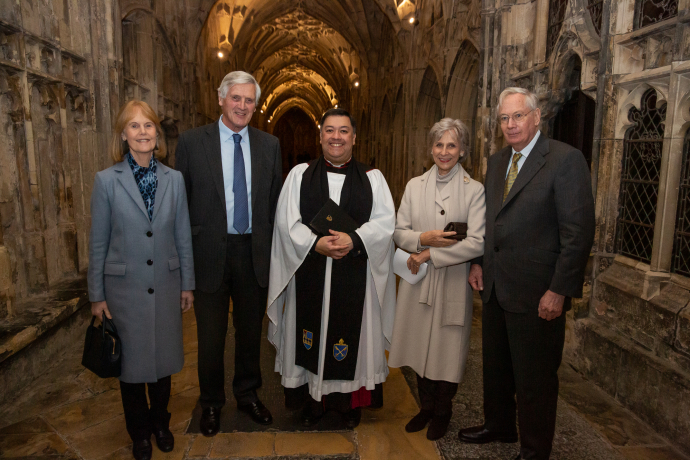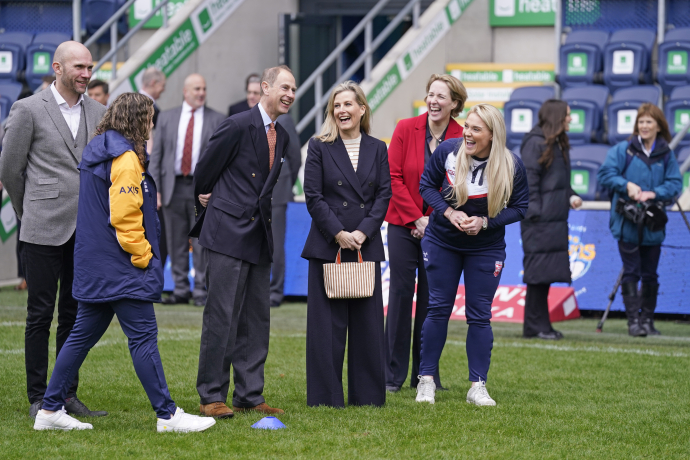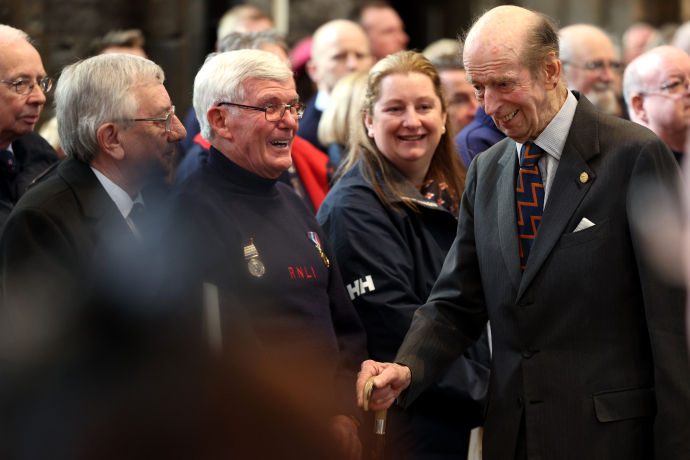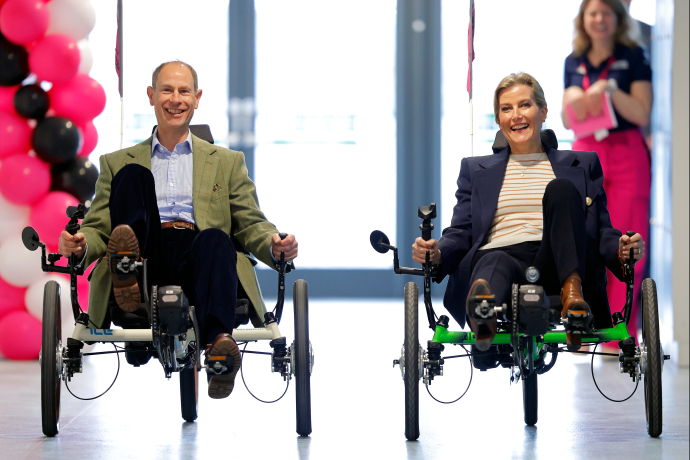Historic Coronation Vestments from the Royal Collection will be reused by His Majesty The King for the Coronation Service at Westminster Abbey
Published
The King will reuse historic items of clothing from the Royal Collection, worn by previous monarchs at past Coronations, during the Coronation Service at Westminster Abbey on 6th May. The ‘vestments’ will be worn as His Majesty is crowned by the Archbishop of Canterbury in the Coronation Chair.
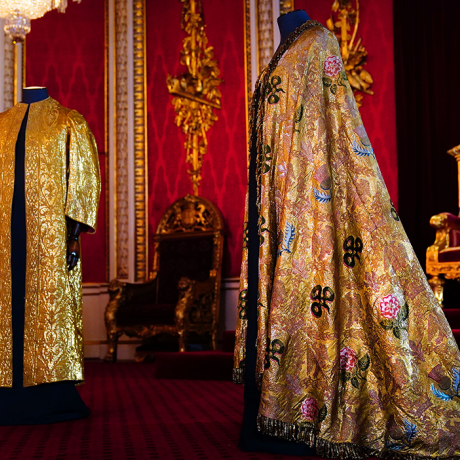
His Majesty will reuse vestments which featured in the Coronation Services of King George IV in 1821, King George V in 1911, King George VI in 1937 and Queen Elizabeth II in 1953, including the Colobium Sindonis, the Supertunica, the Imperial Mantle, the Coronation Sword Belt and the Coronation Glove.
Although it is customary for the Supertunica and the Imperial Mantle to be reused, His Majesty will also reuse the Colobium Sindonis, Coronation Sword Belt and Coronation Glove worn by his grandfather King George VI, in the interests of sustainability and efficiency.
The Coronation Vestments
The Monarch is invested with the Colobium Sindonis after the Anointing. It takes the form of a white linen shift-like tunic, and a plain collar fastened with a single button, intended to represent a priests' alb. His Majesty The King will use the Colobium Sindonis worn at the Coronation of his grandfather King George VI at Westminster Abbey on 12th May 1937, which was made by the robemakers Ede & Ravenscroft.
The Supertunica takes the form of a full-length, sleeved gold coat and is worn under the Imperial Mantle. The Sovereign is invested with the Supertunica following the Anointing and it is fastened with the Coronation Sword Belt.
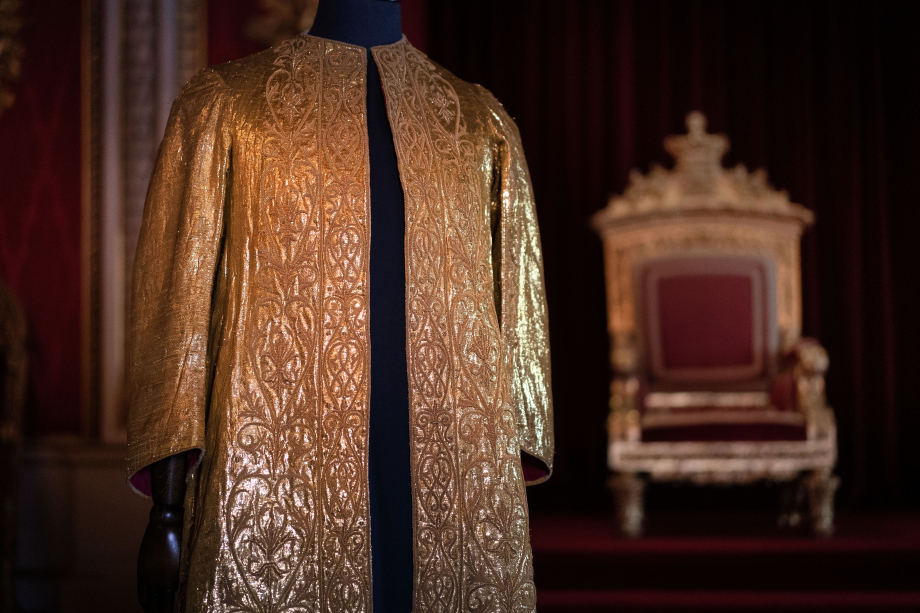
This Supertunica was made in 1911 for the Coronation of King George V, which took place on 22nd June 1911, by Wilkinson and Son, Robe-makers and Tailors. The Supertunica has subsequently also been worn by King George VI at his Coronation on 12th May 1937 and by Queen Elizabeth II on 2nd June 1953.
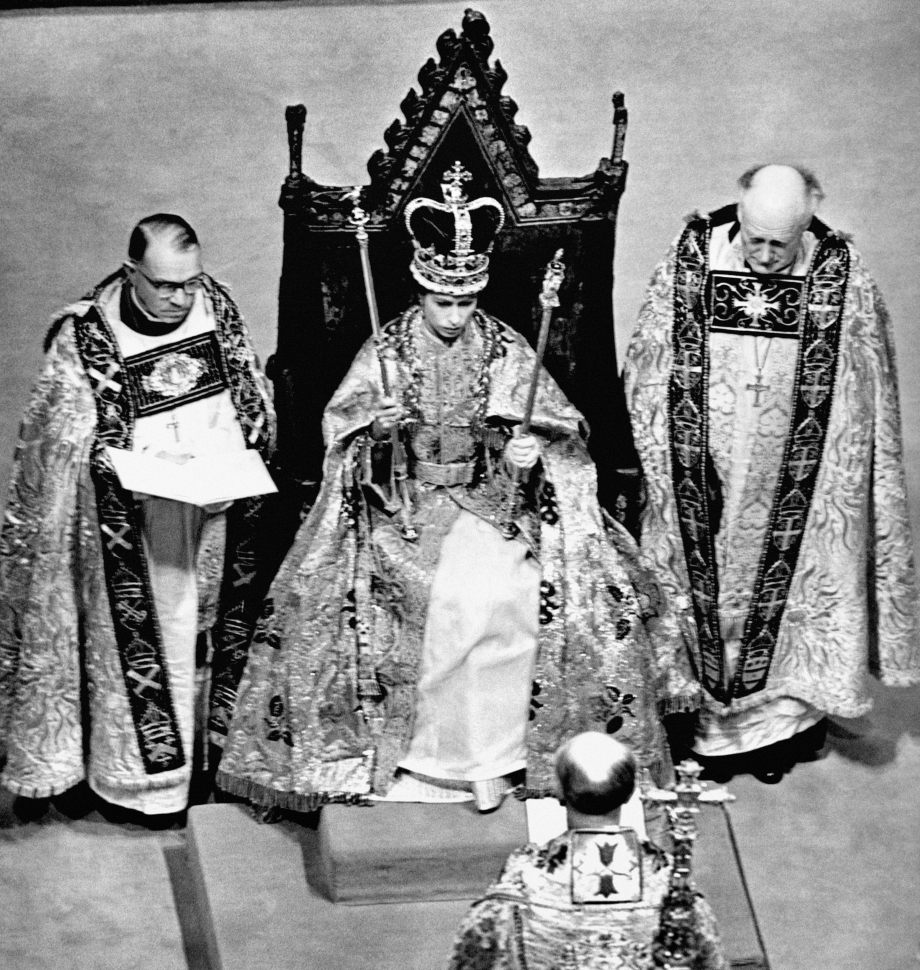
Although this Supertunica dates from the twentieth century, the form of the Supertunica has changed little since medieval coronations. The design of the Supertunica is based on priestly and religious vestments.
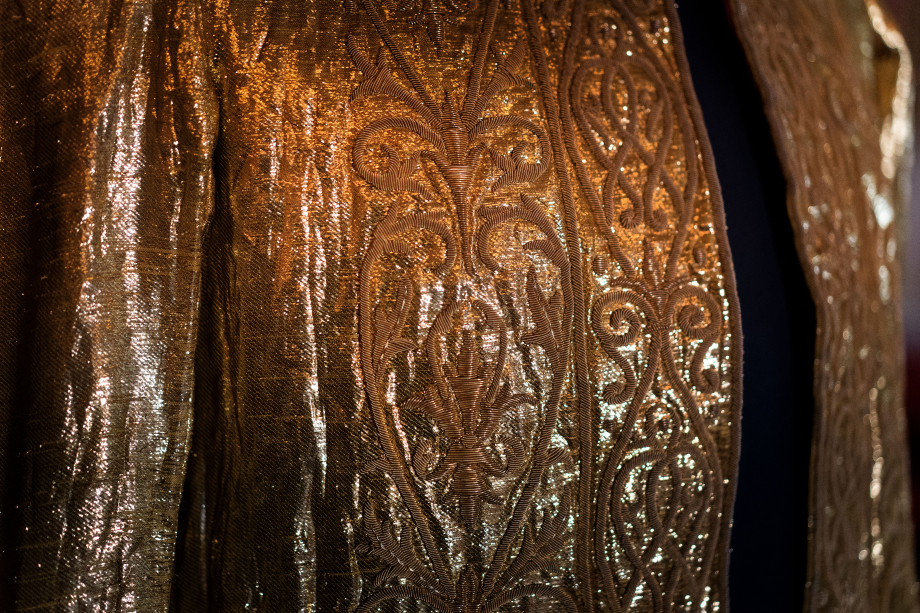
Each side of the front of the Supertunica features an embroidered band with spiral threads, which take the shape of leafy stems using the goldwork technique. The embroidery was carried out in 1911 by the Ladies Work Society and, as part of the centuries-old tradition for the Supertunica, is based on ecclesiastical vestments from medieval times.
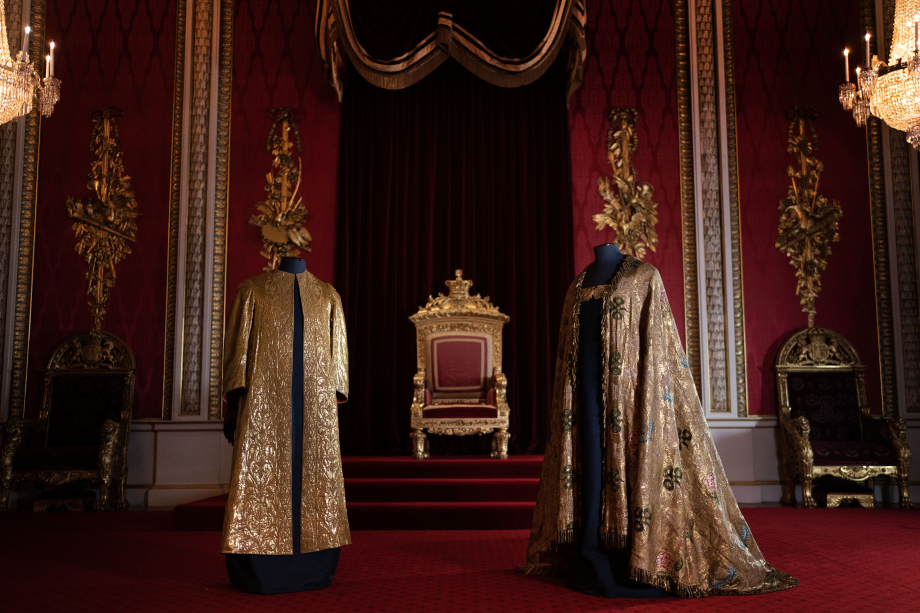
The Imperial Mantle is worn over the Supertunica and is more similar in design to a robe. The Imperial Mantle being used by His Majesty The King at this year’s Coronation was made for the Coronation of George IV in 1821, and has been worn by King George V, King George VI and Queen Elizabeth II. It is the oldest vestment being used in the Coronation Service.
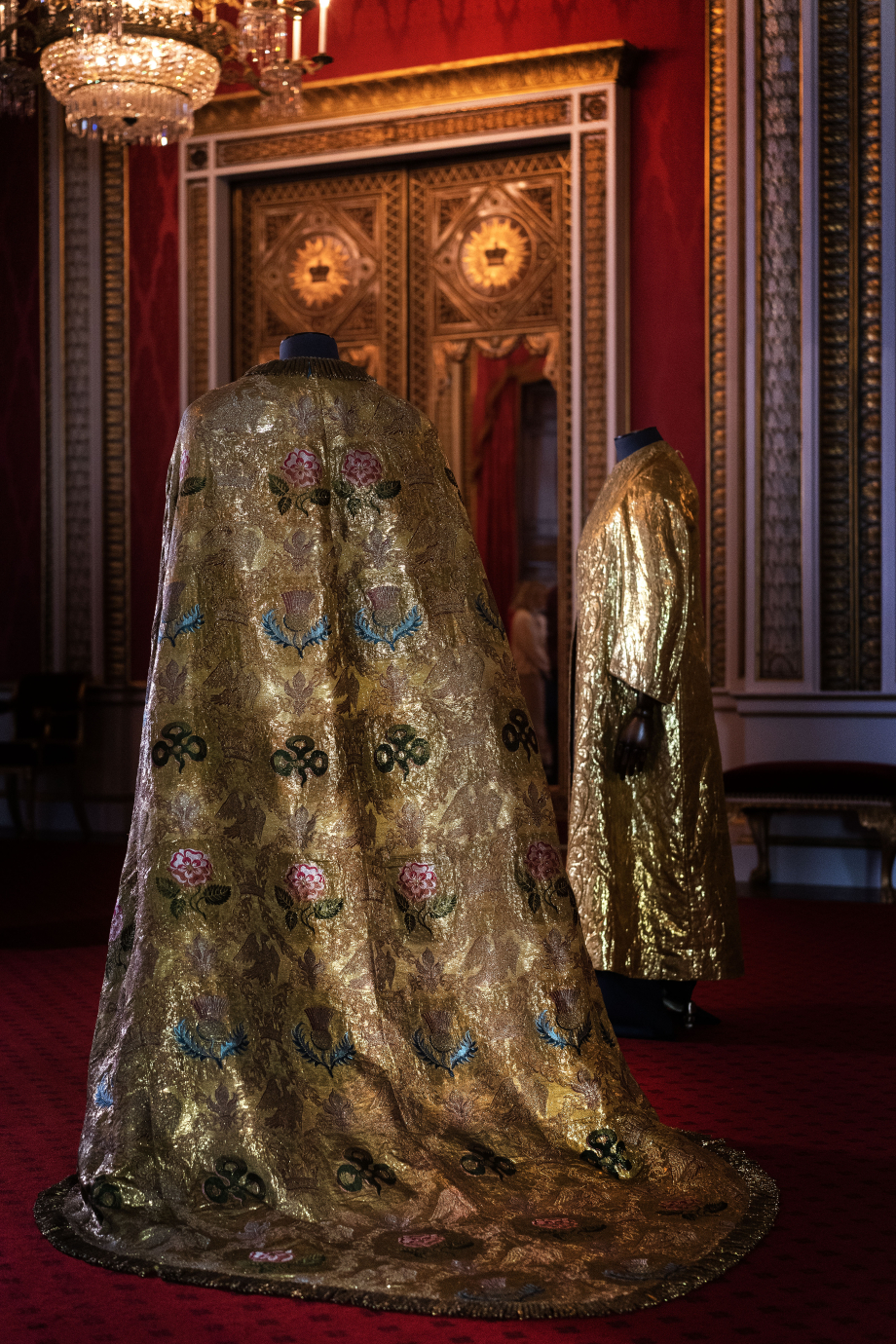
The Imperial Mantle is made of cloth of gold, gold, silver and silk thread, silk, gold bullion fringe and a gold clasp. The cloth of gold is woven with roses, thistles, shamrocks, crowns, eagles and fleurs-de-lis. The gold clasp is in the shape of an eagle, which can also be seen on the newly created Anointing Screen, and in the form of the Ampulla which will hold the Chrism oil.
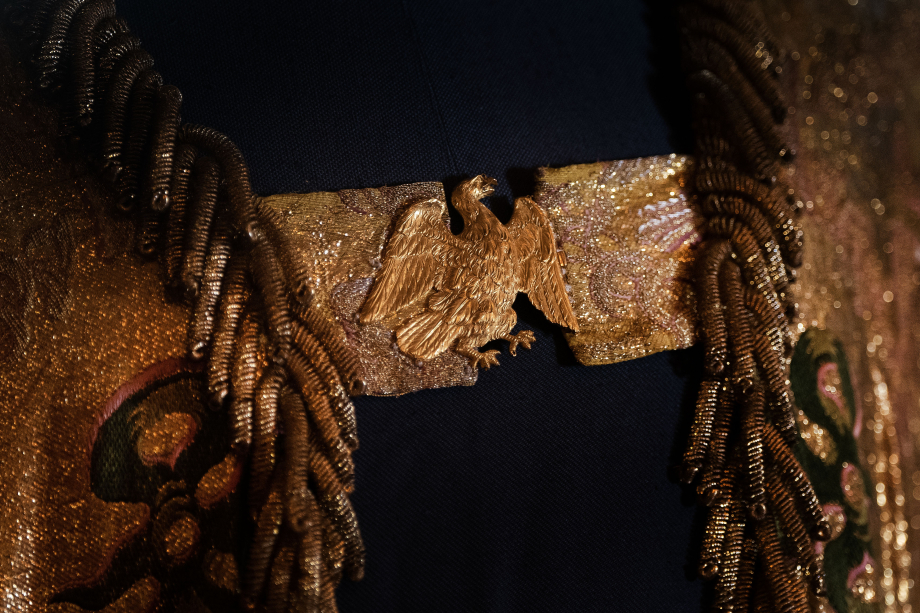
The Imperial Mantle was made by the tailor John Meyer in 1821 and the Royal Goldsmiths to George IV, Rundell, Bridge and Rundell supplied the gold eagle clasp.
The Girdle, also known as the Coronation Sword Belt, is made of cloth of gold, and embroidered in gold thread with arabesques and scrolls. It is lined with dark red silk, with a gold buckle stamped with national emblems (roses, thistles and shamrocks) and a gold clip for attaching the Jewelled Sword of Offering in place.
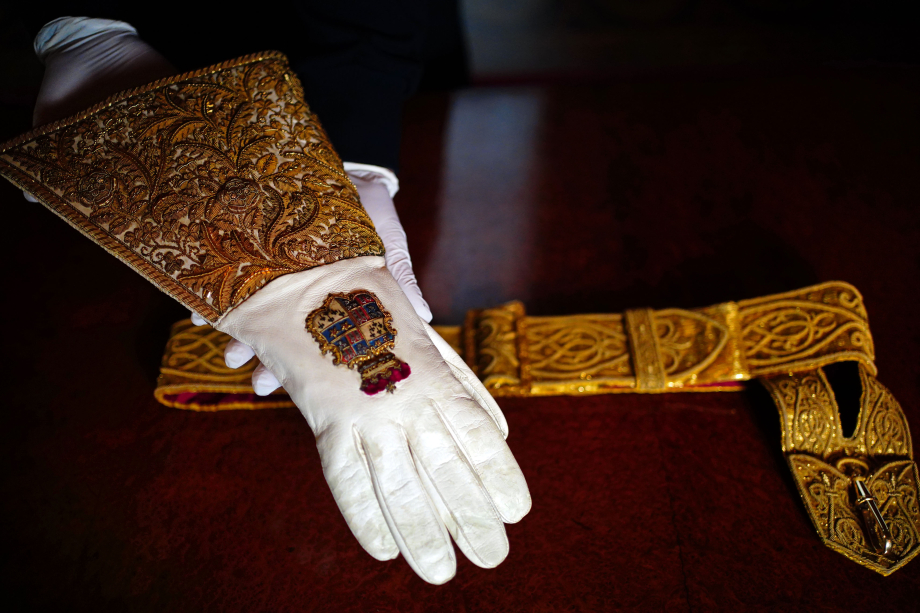
During the Coronation Service, the Sword Belt is placed around the Supertunica. The Jewelled Sword of Offering is then 'girded' or fastened at the Sovereign's waist using the Sword Belt. The Archbishop presents the Sword to the Monarch while saying that it should be used for the protection of good and the punishment of evil. The Sword is then removed and placed on the altar in Westminster Abbey, before the Sovereign is invested with the Imperial Mantle.
Historically the Sword Belt is supplied new by the Worshipful Company of Girdlers for each Coronation. His Majesty has chosen to reuse the Sword Belt made for the Coronation of his grandfather, King George VI, on 12th May 1937.
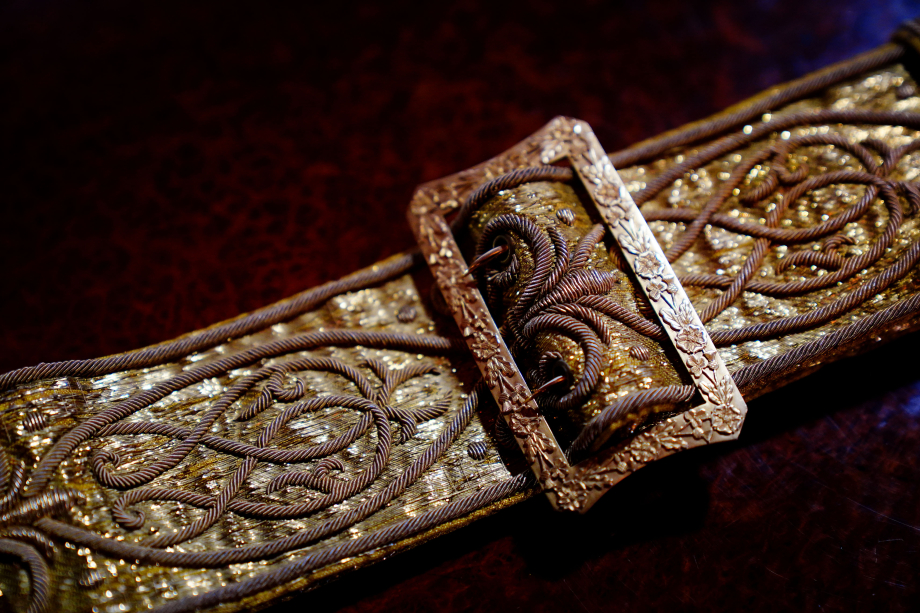
The Sword Belt was made by Wilkinson & Son, Robe Makers and presented by the Worshipful Company of Girdlers in 1937. Ahead of the Coronation Service on 6th May, the Royal School of Needlework have undertaken some minor conservation work on the Girdle, and it has in turn been re-presented to His Majesty by the Worshipful Company of Girdlers.
The Coronation Glove or gauntlet is made for the Sovereign’s right hand. His Majesty The King has decided to reuse the Coronation Glove made for the Coronation of his grandfather, King George VI, in the interests of sustainability and efficiency. It was presented by the Worshipful Company of Glovers, made by Dents the glovemakers, and embroidered by Edward Stillwell & Company in 1937. This Glove has been conserved by Dents with support from the Worshipful Company of Glovers and re-presented by the Company ahead of the Coronation on 6th May.
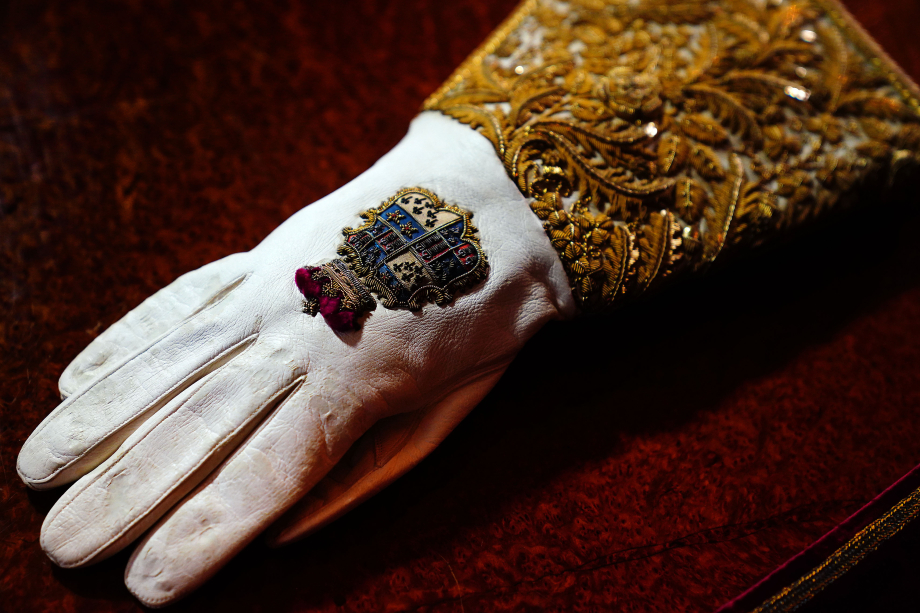
The Glove is worn to hold the Sovereign's Sceptre during the Crowning and then removed before processing to the Throne Chair. At the Coronation on 6th May, the Coronation Glove will be presented to His Majesty by Lord Indarjit Singh of Wimbledon.
The Glove is made of white leather and the wrist is embroidered with gilt metal thread, wire and spangles in the form of national emblems including the Tudor Rose, thistle, shamrock, oak leaves and acorns. The back of the hand with an embroidered ducal coronet in red velvet above the coat of arms of the family of the Dukes of Newcastle. The wrist is lined with red satin.
Related content
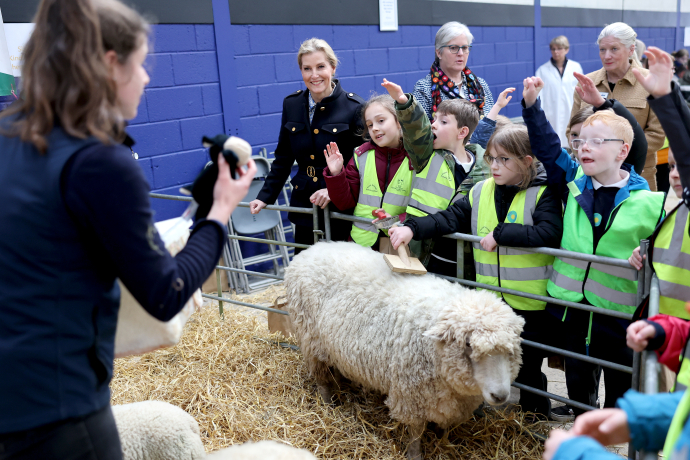
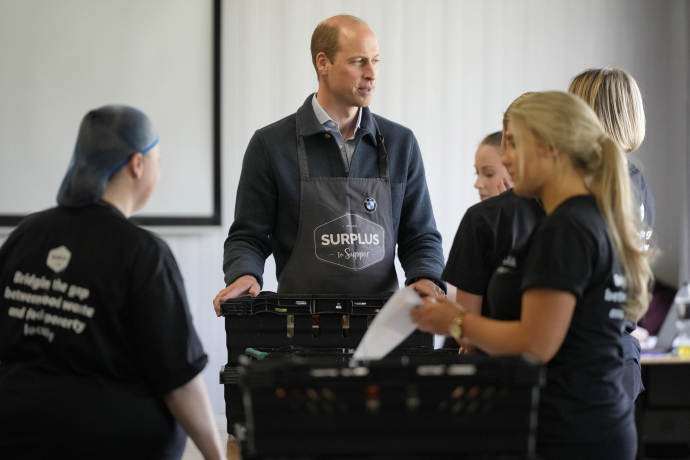
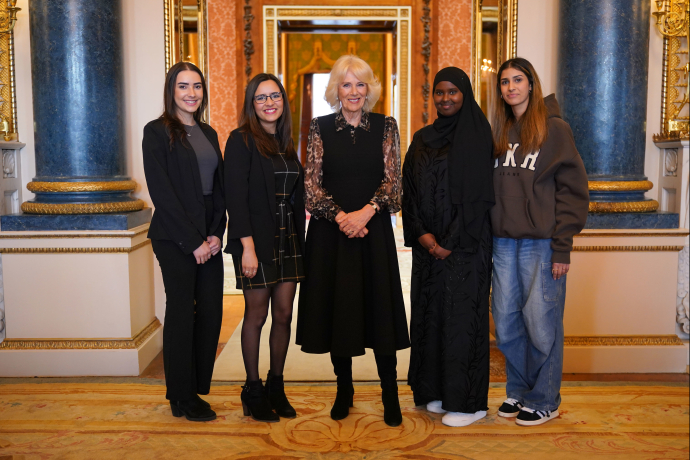
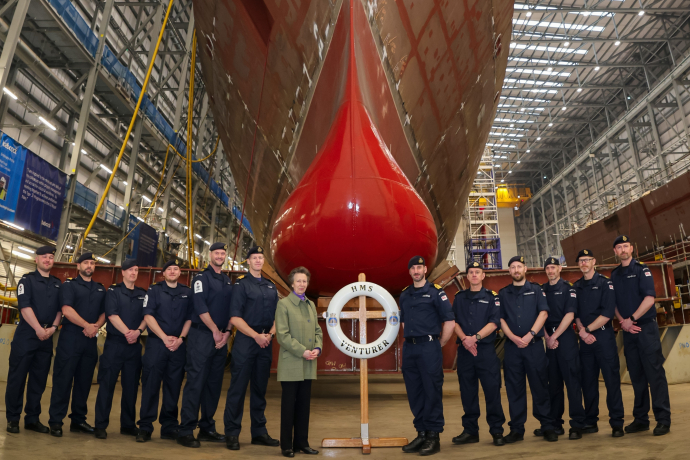
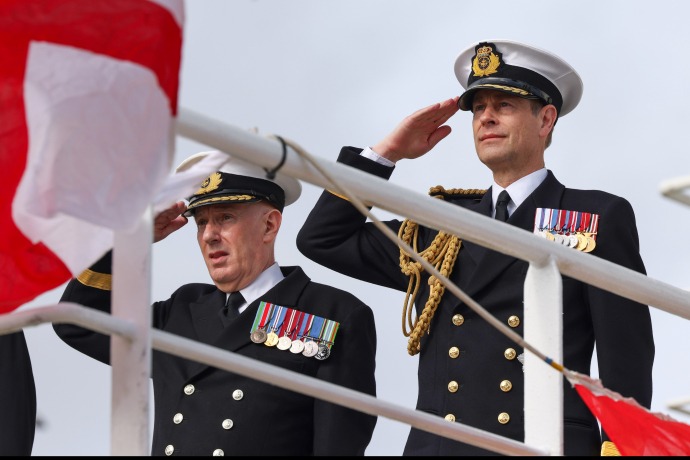
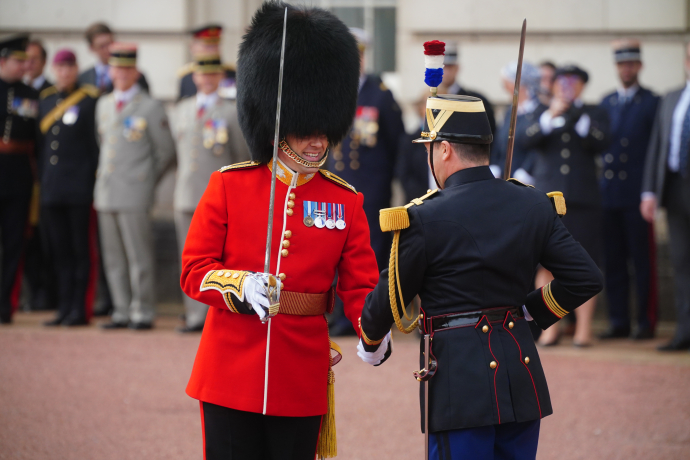
A message from The King on the 75th Anniversary on the Founding of N.A.T.O.
Message from The King for the 2024 Royal Maundy Service
It is my special prayer today that Our Lord’s example of serving one another might continue to inspire us and to strengthen all our communities.
The Queen's speech at a reception to mark the results of The Queen’s Reading Room study
We share a very special bond, ladies and gentlemen – our love of books. Thank you for helping to spread the word.
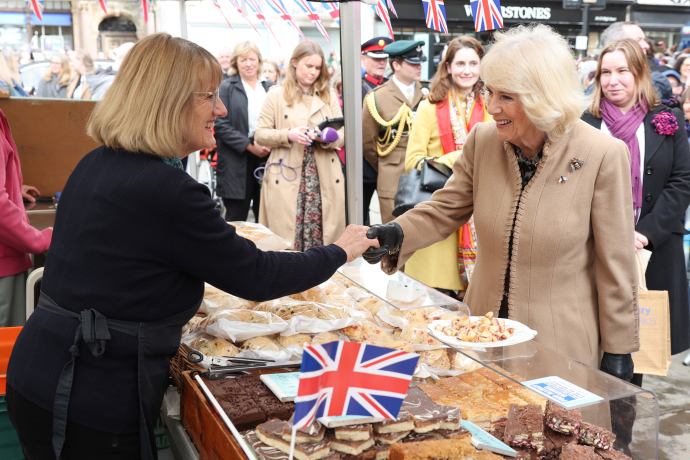
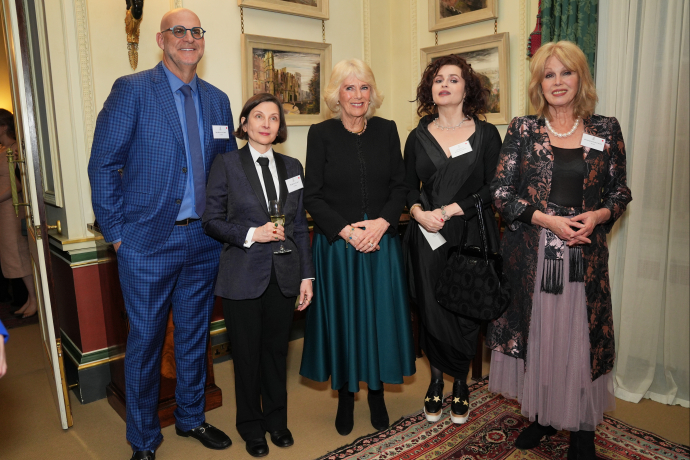
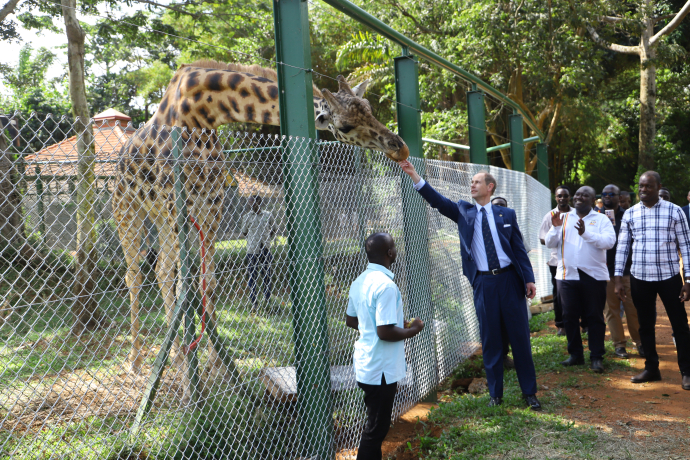
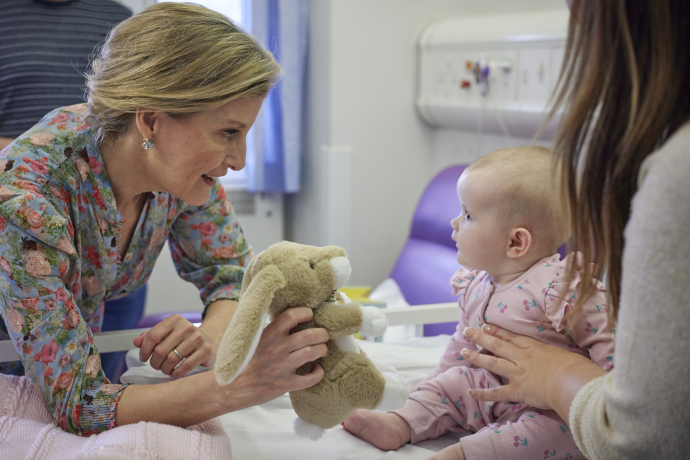
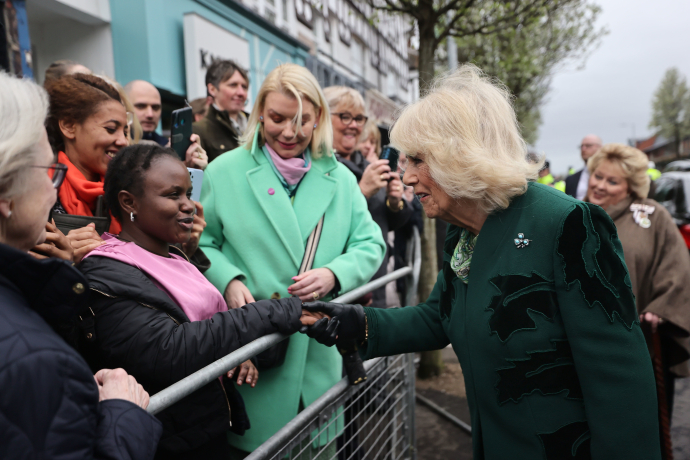
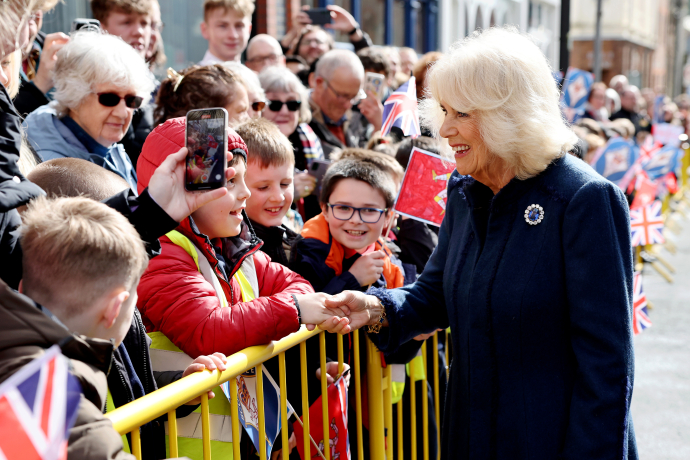
Message from The King to mark the 70th anniversary of the end of the Korean War
It is our duty to remember what was once called “the Forgotten War”.
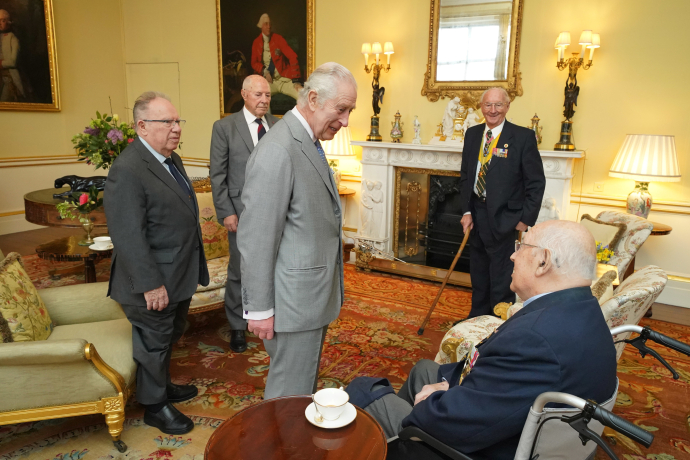

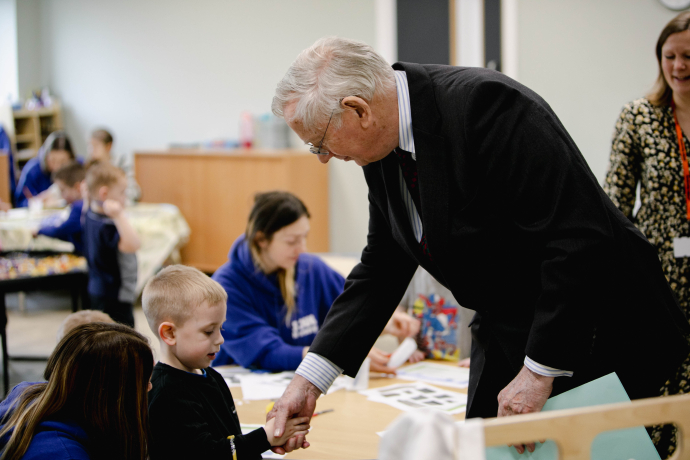
The Duke and Duchess of Sussex
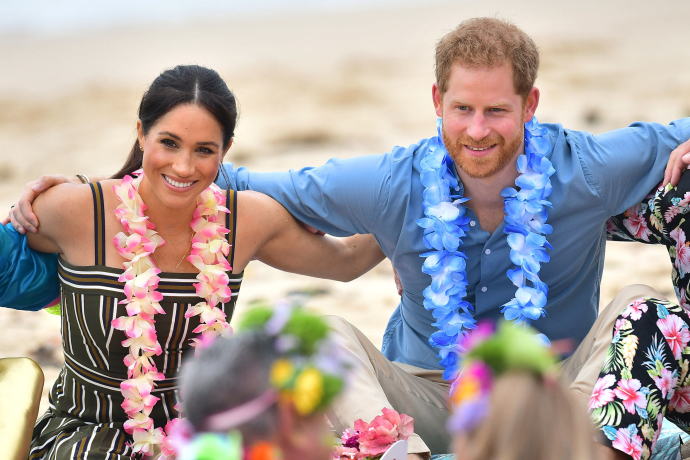
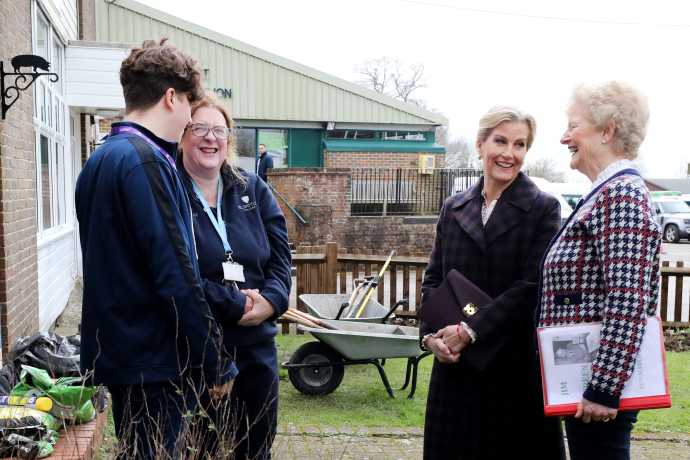
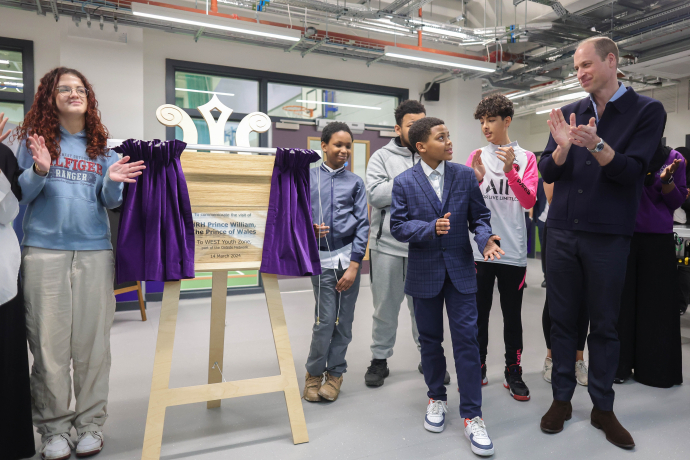
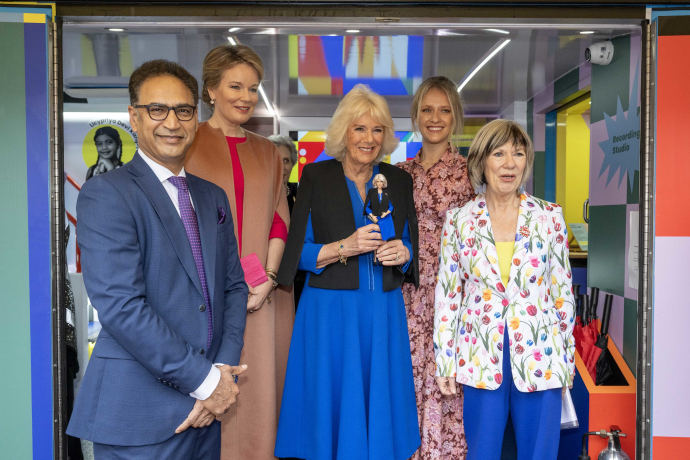
A speech by Her Majesty The Queen at a reception to celebrate International Women’s Day and to mark the end of the WOW Girls Festival Bus tour
Let your lives be the stones that will shatter glass ceilings everywhere and inspire generations to come.
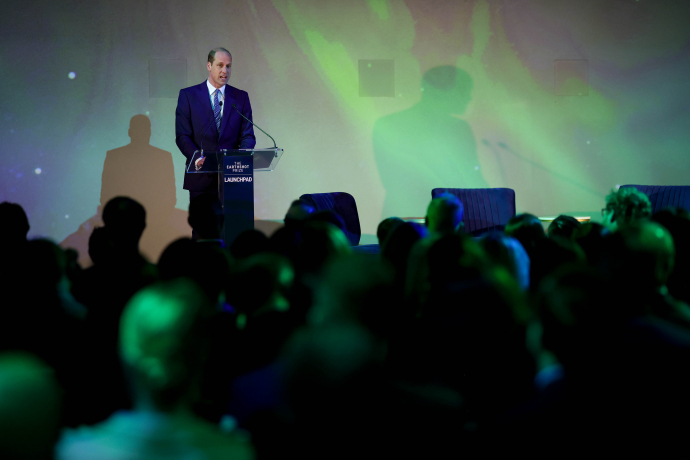
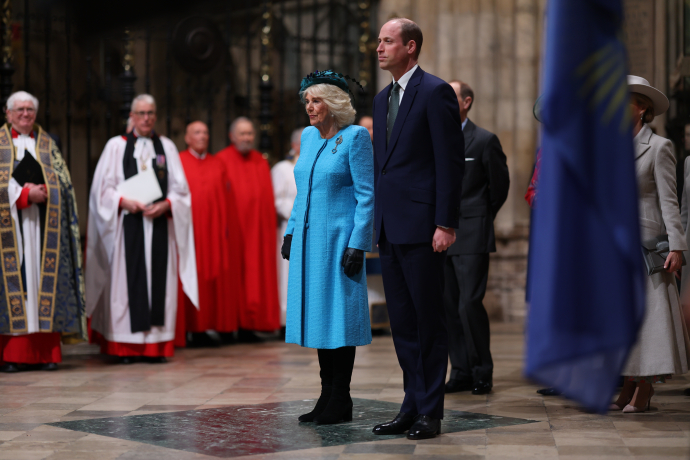
The King's Commonwealth Day Message 2024
The Commonwealth family is strongest when we are connected, through friendship.
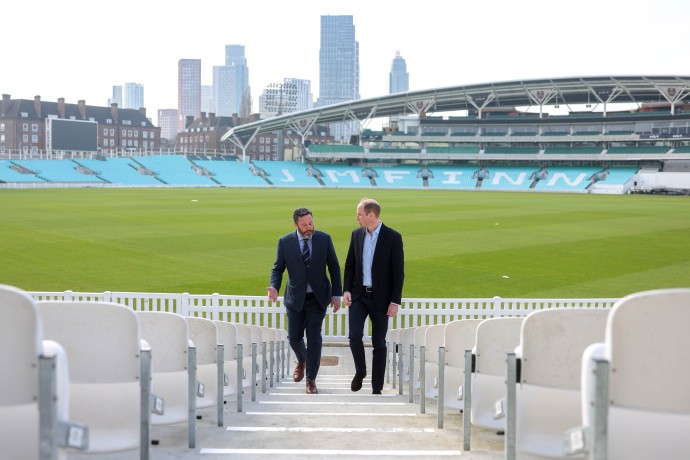
A speech by The Duchess of Edinburgh at the Community Sport and Recreation Awards, at Headingley Stadium, Leeds, ahead of The Duke of Edinburgh’s 60th birthday.
He is the best of fathers, the most loving of husbands and still is my best friend.
A speech by Her Majesty The Queen at the Grand Final of BBC's 500 Words, Buckingham Palace
Between you, you have created more than a million stories of thought-provoking adventure for future generations to study and enjoy. Thank you to everybody who has taken part...
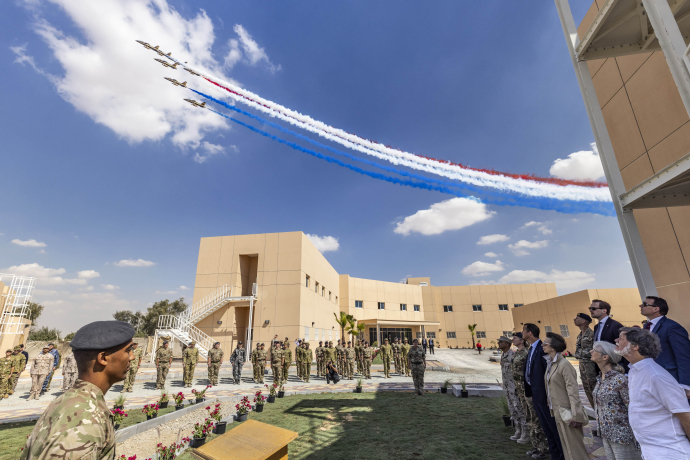
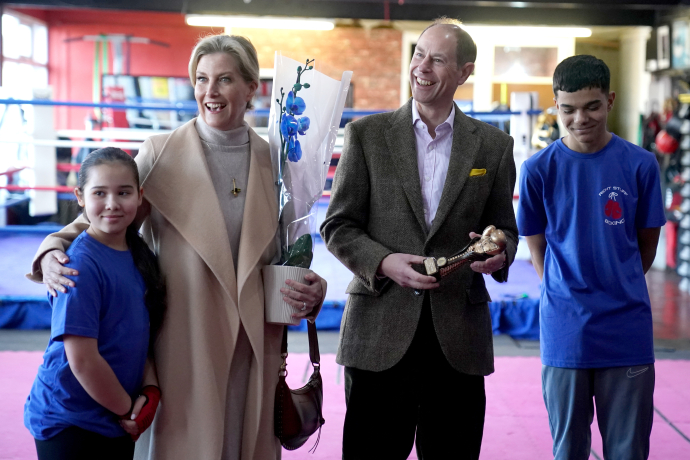
A message of condolence from The King to the President of Tanzania following the passing of former Tanzanian President, Ali Hassan Mwinyi
My thoughts and prayers are with former President Mwinyi’s family and the Tanzanian people at this time.
A speech by The Duchess of Edinburgh, via video message, at the Restoration of the Conflict-Related Sexual Violence Survivors’ Rights Conference, Ukraine
We must stand shoulder to shoulder with all survivors to secure justice and holistic redress, and ensure that this crime isn’t an accepted part of conflict.

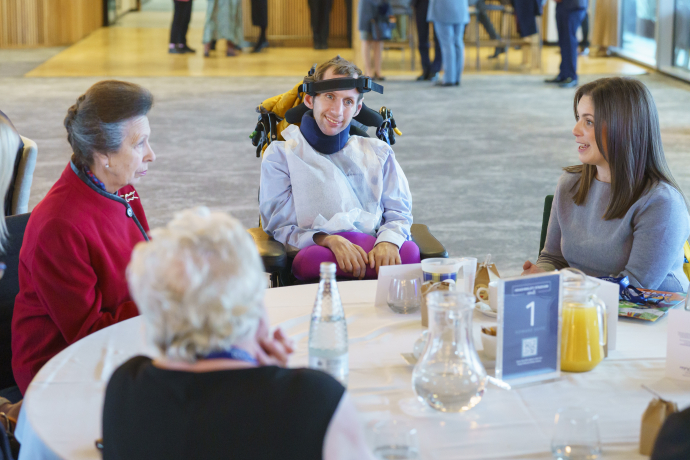
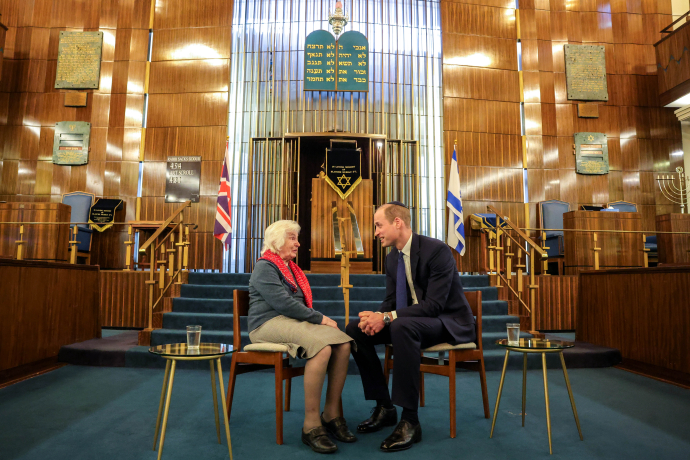
Charities and Patronages
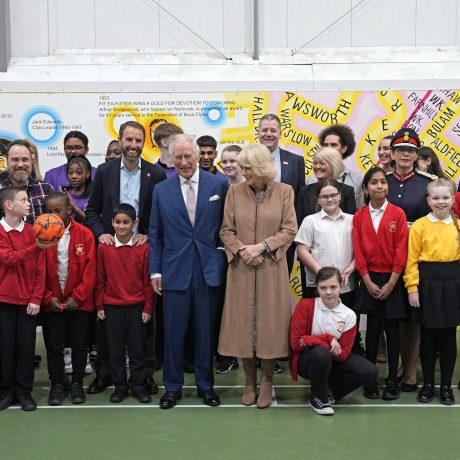
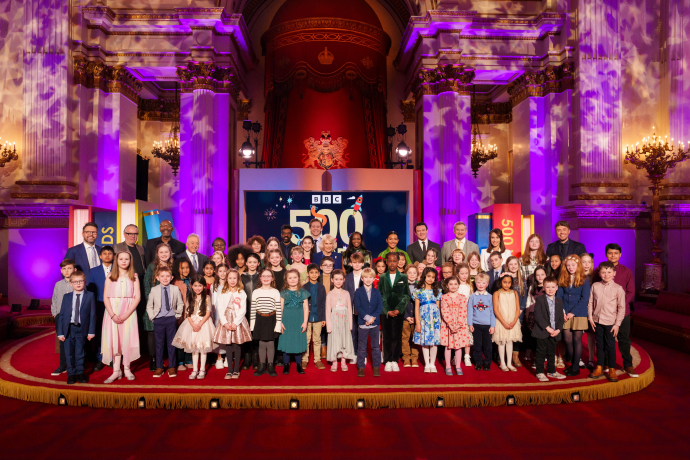
The King's message marking two years of conflict in Ukraine
My heart goes out to all those affected, as I remember them in my thoughts and prayers.
